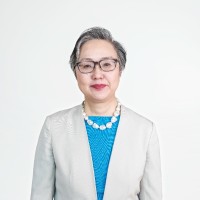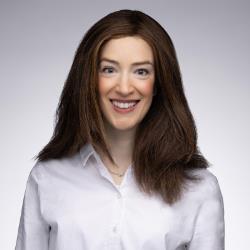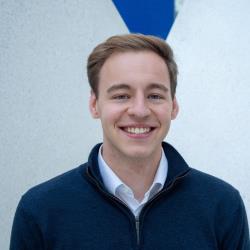Geneva Trialogue 2024
University of Geneva - UNITAR - WSIS
Session 482
High-level panel: YOUTH, AI, AND EDUCATION
The Geneva Trialogue brings together thought leaders from Academia, International Organizations and the Private Sector to shape actionable challenges that advance the cause of education for the SDGs. This year’s theme of enhancing education with artificial intelligence has a focuses on applications of AI to the Model United Nations (MUN), a global youth network that trains nearly a million young people each year in how to organize debates on the most challenging issues of our times, modeled on how the UN debates such issues. This theme and focus are directly inspired by the outcomes of the last Geneva Trialogue, which took place at CERN in March 2023. One of the discussion tables was led by representatives of the UN Youth Associations, UNYA, and GIMUN, a Geneva-based MUN on “Raising the Impact of Model United Nations”. The outcomes of those discussions fed into a follow-up hackathon in June, called Hackathon Piaget, organized by UNESCO and the University of Geneva. Results from that hackathon showed the potential for AI to transform the learning experience of MUN events. A prototype was developed based on these insights during the UN Datathon in November, by experts from the UN Framework Convention on Climate Change (UNFCCC), academics from the Spanish National Research Council and the University of Geneva, and two SMEs, AICrowd from Switzerland and MyMUN from Germany. The prototype was demonstrated at COP 28 in Dubai, and the result is now being integrated into the workflow for future COPs. This chain of events would not have occurred without the initial seed of a well-formed challenge that emerged from the last Geneva Trialogue, and similarly, impactful outcomes are expected from this year’s Geneva Trialogue. That’s why your organization should be at the tables where innovation for education and the SDGs begins!

I am a physicist with a background in nanotechnology, and a passion for citizen science. I also have broad experience in science management, teaching and communication, in the United States, China, Japan, Germany, Denmark and Switzerland. During the past decade, I have managed the development of a series of online citizen science projects in a wide range of research fields, starting with the launch of LHC@home in 2004 while I was a manager at CERN. In 2009, I established a partnership for citizen science between CERN, the UN Institute for Training and Research (UNITAR) and the University of Geneva, now called Citizen Cyberlab. As an invited professor at the Centre Universitaire d’Informatique (CUI) of the University of Geneva since 2014, I coordinate Citizen Cyberlab, managing the development of technologies for crowdsourced research, exploring the broader impact of citizen science for society, and promoting public participation in science through hands-on events. I also teach courses on Open Science and Citizen Science at the bachelor and master level. Since 2016 I am Director of the Geneva Tsinghua Initiative, a comprehensive education programme for the UN Sustainable Development Goals. From 2016-18 I was Director of Digital Strategy for the University of Geneva.


Prior to her current position, Juliane Schroeter has been an ordinary professor of German linguistics at the’University of Geneva since 2020.
She's a specialist in cultural linguistics,’analysis of political communication, analysis of’argumentation as well as pragmatics, textual linguistics and discourse linguistics, and, the combination of quantitative (digital) and qualitative methods.
After studying in Darmstadt, Kassel (Germany) and Saint-Louis (USA) she continued her studies at the University of Zurich, where she obtained a doctorate in 2010 and a venia legendi (authorization) in 2015. She was awarded a SNSF scholarship and became a professor at the Zurich Hochschule fur Angewandte Wissenschaften in 2018. During the same year, she was appointed as an ordinary professor at’University of Vienna.

Jonas is the visionary of the team with feature-ideas that know no limit. Thanks to him we have future-feature-lists scrolling for days. Having been a Secretary General and successful delegate and Chair himself for years, his network and experience are unparalleled.

Merging both worlds – MUN and programming, Alex has vast experience in both areas. As a seasoned MUNer, he excelled as a delegate and organized conferences himself. Studying Engineering & Policy Analysis, he gained experience in programming and also worked at various software companies.


I am the CEO and Co-founder of AICrowd, a platform for organising machine learning challenges on a variety of real world problems.
While working on my PhD at École polytechnique fédérale de Lausanne (EPFL), Switzerland, I worked on a diversity of problems in Artificial Intelligence from image based detection of plant diseases, to teaching simulated musculo-skeletal models how to walk using reinforcement learning. I took a leave of absence from my PhD to start and focus on AIcrowd.
In a previous life, I was working at the Theoretical Physics department at CERN, on the CERN Public Computing Challenge, which was an experimental effort to crowdsource the compute requirements of physicists at CERN by allowing citizens all over the world to donate their unused computing power.
I am also an aspiring artist, and have been experimenting with using methods from my research in AI as a form of creative expression.

Focused on supporting and giving technical assistance to developing countries in the thematic priorities of digital inclusion (women, children, youth, persons with disabilities, indigenous people, older persons) and digital innovation ecosystems.


-
 C1. The role of governments and all stakeholders in the promotion of ICTs for development
C1. The role of governments and all stakeholders in the promotion of ICTs for development
-
 C3. Access to information and knowledge
C3. Access to information and knowledge
-
 C4. Capacity building
C4. Capacity building
-
 C7. ICT applications: benefits in all aspects of life — E-learning
C7. ICT applications: benefits in all aspects of life — E-learning
-
 C10. Ethical dimensions of the Information Society
C10. Ethical dimensions of the Information Society
-
 C11. International and regional cooperation
C11. International and regional cooperation
Role of Governments and Stakeholders in the Promotion of ICTs for Development: The Trialogue often emphasizes how governments, alongside private sector players and civil society, can collaborate to create policies and frameworks that encourage the spread and effective use of AI. This includes discussing regulations, incentives, and partnerships that support innovation and infrastructure development necessary for widespread ICT adoption.
Access to Information and Knowledge: Discussions might cover issues like the promotion of open educational resources through ICTs.
Capacity Building: The Trialogue likely addresses how various stakeholders can collaborate on educational and training programs to equip young people (MUN students) with necessary digital skills, thus expanding their opportunities in an increasingly digital world.
E-Learning: Specifically, one table will explore how e-learning can be developed and used globally. This includes sharing best practices, technological innovations, and strategies for integrating e-learning in traditional educational systems to enhance learning outcomes.
Ethical Dimensions of the Information Society: Specifically, the Trialogue will discuss the responsible use of AI as an ideal setting to debate these issues.
International and Regional Cooperation: Participants come from different organizations and nationalities and will be thinking of a global context situation, the MUN events.
-
 Goal 4: Ensure inclusive and equitable quality education and promote lifelong learning opportunities for all
Goal 4: Ensure inclusive and equitable quality education and promote lifelong learning opportunities for all
-
 Goal 10: Reduce inequality within and among countries
Goal 10: Reduce inequality within and among countries
-
 Goal 17: Revitalize the global partnership for sustainable development
Goal 17: Revitalize the global partnership for sustainable development
SDG 4: Quality Education:
The Trialogue's will explore solutions for e-learning and ICT resources with the participation of students and academics. Discussions may include how technology can scale educational tools and content that improve learning outcomes.
SDG 10: Reduced Inequalities:
Democratization of international dialogue through the training of young people are the focus areas for the Trialogue. These will help bridge the digital divide and reduce socio-economic disparities.
SDG 17: Partnerships for the Goals:
The Geneva Trialogue itself is a manifestation of SDG 17, as it embodies the spirit of partnership. By bringing together diverse stakeholders, the event fosters collaboration and shared commitments among various sectors, crucial for achieving all the SDGs.